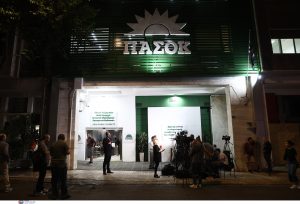The autumn is bringing with it an unexpected degree of internal turmoil for Greece’s political parties.
SYRIZA is teetering on the brink of disintegration. PASOK is electing a leader today, so we’ll see what the future holds. There has even been some grumbling and discontent within the New Democracy camp.
Of course, no one can say where any of this is going to lead. But for the time being, they look more like storms in a teacup than anything else.
Given that the country’s political stability doesn’t look to be under threat. But also because the unrest is strictly internal, so new alignments and coalitions between parties aren’t on the cards. Meaning the Greek political realities remain unchanged.
All the signs would indicate that the new system of governance ushered in by the elections of the last eighteen months is threatened more by the weaknesses of the ruling party than by the actions of the political forces in opposition to it.
Needless to say, this doesn’t create “imbalances” or other side effects, as some people are saying. Greek democracy is robust enough now to protect itself, whatever the political landscape.
But it does place a crucial responsibility on the dominant party: to use its dominance for the good of the country.
In any case, the current administration is governing with very little in the way of opposition, and with little prospect of a meaningful counterweight emerging in the near future. In so far as the selection processes in the opposition parties more closely resemble a high school vote than anything else.
Which means that, come the next general elections, the government will be judged primarily on what it did and what it didn’t do. And there’s nothing wrong with that. It’s a value judgment which, if taken optimistically, can make for less toxicity and polarization.
After all, polarization needs two poles, and for the times being, there’s no sign of a second.
But I’m not so sure we should be optimistic. Because when political debate lacks meaningful content, it has a tendency to deteriorate into a confrontation over the meaningless.
Especially when parties offload their unresolved internal divisions onto the broader political stage. With consequences even their supporters can’t predict—just take a look at what’s happening today in SYRIZA.
Because the party-political storms may be raging in a teacup for now, and not sucking any ‘outsiders’ into their vortex, but at some point the cup will overflow.
And then, even though the storm may not send any ships to the bottom, it’s anyone’s guess who’ll take on the most water.










